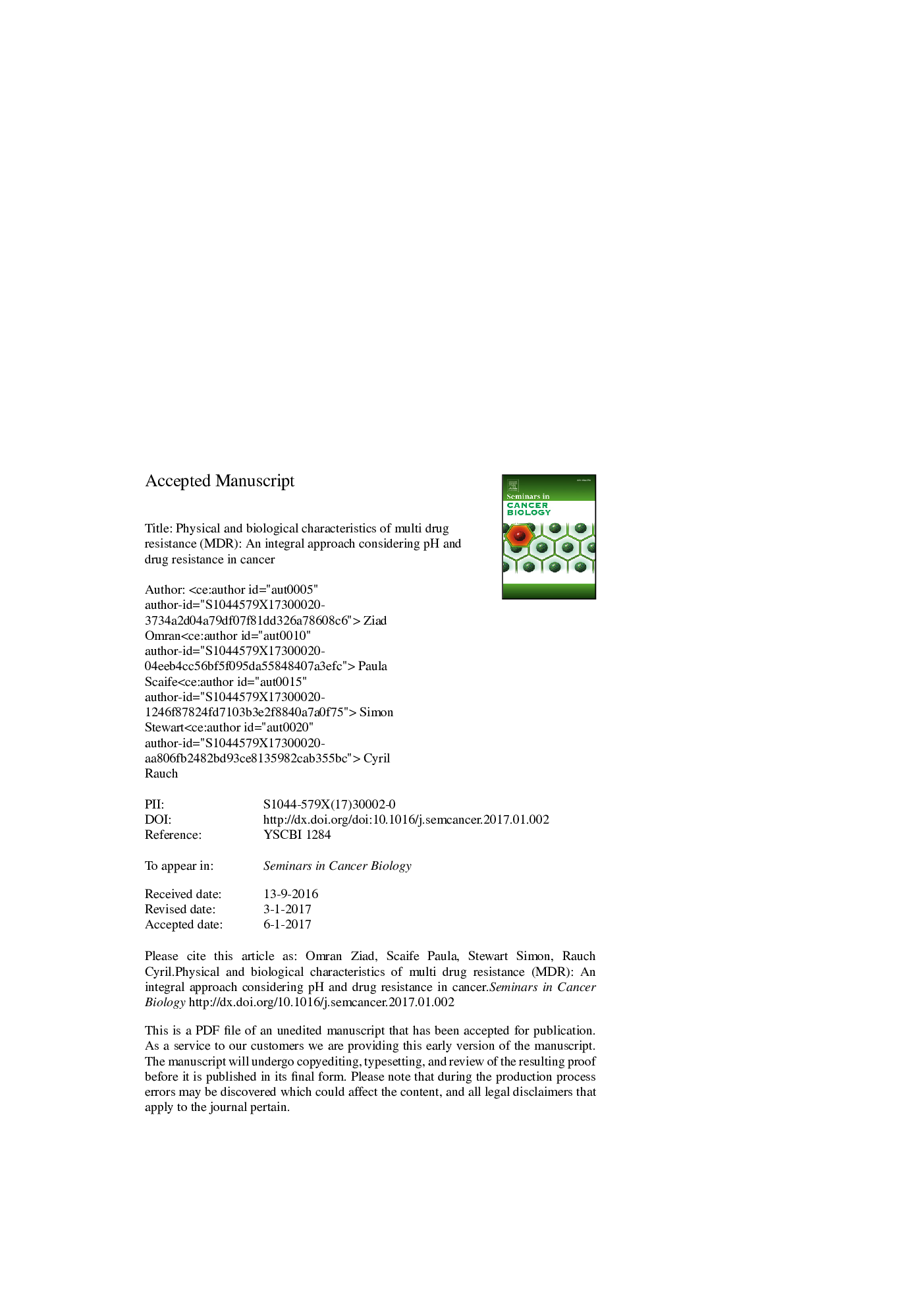| Article ID | Journal | Published Year | Pages | File Type |
|---|---|---|---|---|
| 8361928 | Seminars in Cancer Biology | 2017 | 24 Pages |
Abstract
The role of the Warburg effect in cancer remains to be elucidated with a resurgence in research efforts over the past decade. Why a cancer cell would prefer to use energy inefficient glycolysis, leading to an alteration of pH both inside and outside of the cell, remains to be uncovered. The development of MDR represents a major challenge in the treatment of cancer and it is explained, so far, by the over expression of drug transporters such as the well-known and archetypal P-glycoprotein (Pgp). However, controversies exist regarding the function of Pgp in multi-drug resistance. We suggest here that Pgp-mediated MDR relies fundamentally on pH alterations mediated by the Warburg effect. Furthermore, we propose that the use of proton pump and/or transporters inhibitors (PPIs/PTIs) in cancer are key to controlling both MDR, i.e. sensitize tumors to antineoplastic agents, and drug-related adverse effects.
Related Topics
Life Sciences
Biochemistry, Genetics and Molecular Biology
Biochemistry
Authors
Ziad Omran, Paula Scaife, Simon Stewart, Cyril Rauch,
